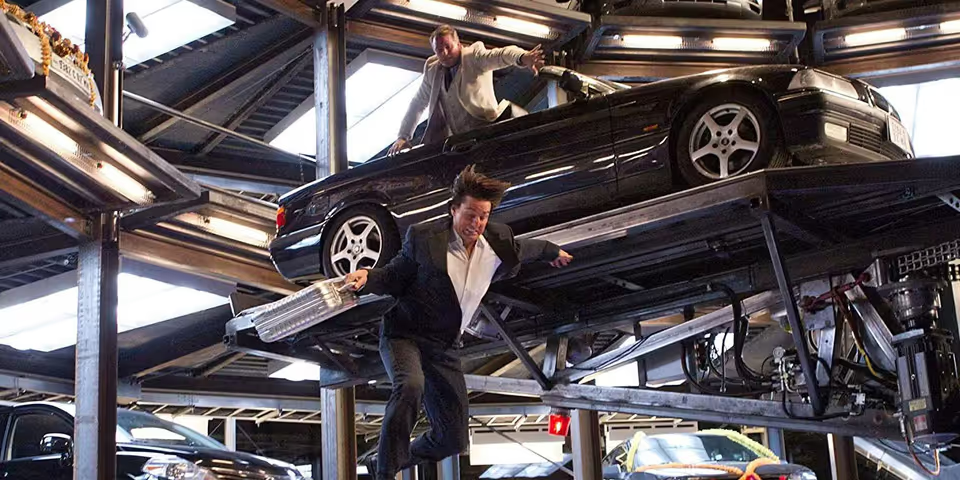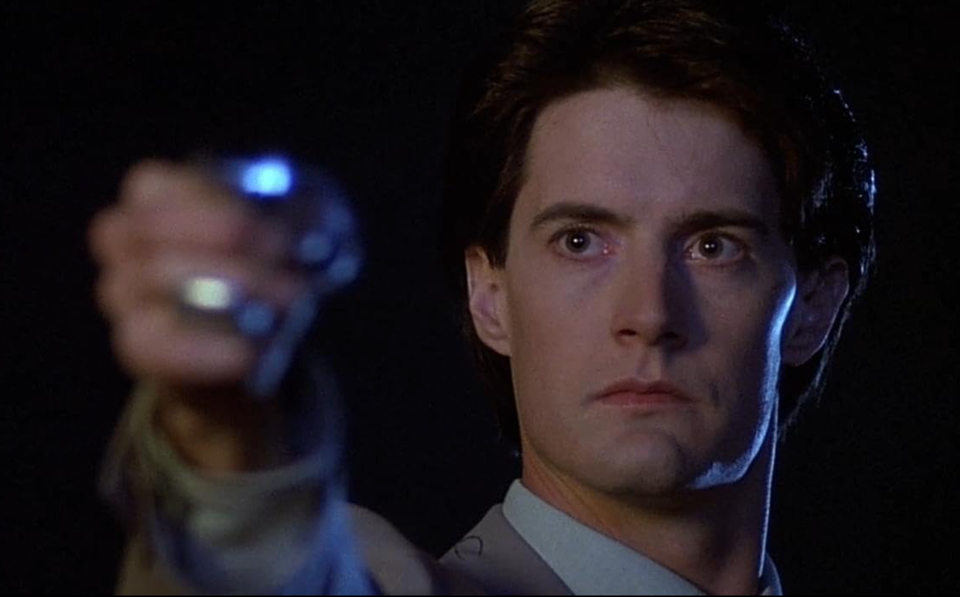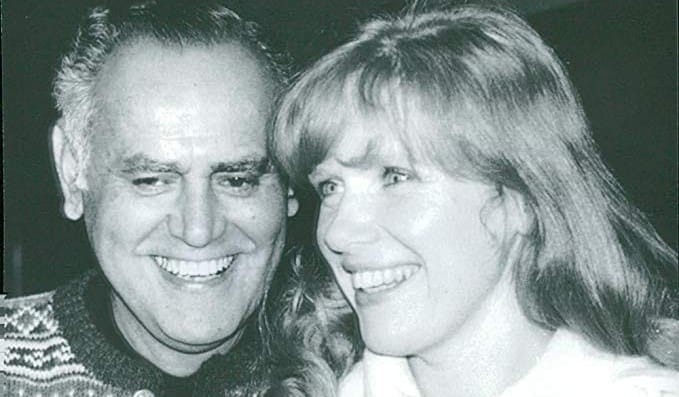The trope doesn't have to mean cliché.
Sometimes, a story wants or needs a beat that we have seen many, many times before. That makes it more of a challenge, not less.

The Story and Plot Weekly Email is published every Tuesday morning. Don't miss another one.
Sometimes, a story wants or needs a beat that we have seen many, many times before.
Perhaps it's a wedding, a breakup, a funeral, a woman in labor, or a proposal.
There is a long tradition of embarrassing someone in public. In the old films, it was in the newspapers, then it was on television, and now it's on the internet.
These types of beats are common because they are universal moments we all recognize in one way or another. It's natural that they would pop up often.
But what do we do when our story needs one of these? The familiar nature of these scenes often makes them more challenging, not less.
Sure, we can phone it in and write something we've seen a hundred times, but if you were okay settling for that, you probably wouldn't be subscribing to this email.
We remember what is different.
This is true about the days of our lives, and it is true about the screenplays we read and the movies we see.
Over your lifetime, you have likely seen at least 30 breakup scenes on screen. Is this a scientific number? Nope! I'm making it up.
But you have seen A LOT of them.
How many can you remember? If I were to take recency bias out of it, the one I always recall is from 2008's FORGETTING SARAH MARSHALL.
Why?
The protagonist (played by Jason Segel) is naked throughout the whole breakup scene.
Not only does his girlfriend dump him, but any remaining dignity is stripped away by being bare-ass naked for the whole thing.
There are two ways a scene stands out:
- It is something we haven't seen before.
- It makes us FEEL something.
The second one is much more important.
BUT.
The second one is also much easier to achieve if the first one is also true.
When other filmmakers, artists, producers, and executives read your screenplay, they tend to feel more confident about moments they have not seen before because it feels less "execution-dependent."
That is, since the idea is the strength, it already works, and there is more room for error when it is finally all put together.
Most new writers don't realize how cliché their scene is.
Not everyone has seen thousands of movies or read as many scripts. They don't know that waking up to an alarm clock is how 80% of new screenwriters open their screenplay.
They don't know that an "out in public" breakup has been done more times than we can count, or a frantic husband driving his wife to the hospital as she screams with labor pains isn't exactly fresh.
If their sensibility isn't naturally skewed, there isn't much they can do about this except watch more movies and get honest feedback.
Relying on execution is only slightly better.
This is when we think just writing funnier dialogue is enough to transcend the cliché. Or we can increase the tension, romance, or whatever emotion we want to evoke.
Of course, any time we can mine more emotion that is truthful and appropriate, we should do it. But the downside here is that we are putting tremendous pressure on ourselves to be brilliant.
We have to really knock it out of the park to overcome the otherwise pedestrian scene.
It can be done, but it's the hard way.
The only time I want to pursue the hard way is if there is higher emotional payoff. If the payoff is the same, I'll take the easy way with lower risk every time.
The primary decision you make.
The key is to know what the scene is for. WHY is it in the movie? What needs to change so it can affect the scene that comes after it?
This is the most important thing about any scene, and it is particularly important when faced with a story beat we've seen many times before.
What is the intention of the scene?
Why is it in the movie to begin with?
Once you make that decision YOU are in control. And now you just have to figure out the best way to do it by:
- Giving us something we haven't seen before
- Making us feel something
The evolution of a scene.
Let me show you how these principles played out in my own writing.
A key part of my screenplay, MOST WANTED, is that the protagonist is not happy with his life. This is true through every draft of development.
I like the strategy of seeing a protagonist at home, work, and play within the first sequence (the ordinary world).
If it's not organic and we can't actually see it, it's good to at least get a feel for it.
For MOST WANTED, this left me with the "sh*tty job" trope.
This is the scene where we see how awful the protagonist's job is. Terrible co-workers, terrible boss, terrible customers, terrible activity...
Whatever it is, the job is terrible.
I could not find an approach I liked.
I brainstormed a lot of variations and tried to focus on the story and the man's mid-life crisis. Perhaps his boss was fifteen years younger than him!
But we've seen that a hundred times.
What could I bring that was fresh and interesting? I really struggled.
Then I watched ANT-MAN again.
And I saw that ANT-MAN has a "sh*tty job" scene, and they brought nothing new to it. My thinking was that if even Marvel can't innovate here, maybe I should just punt.
So I did.
I decided not to have the scene at all!
I put the character in a short-sleeve button-down and a JC Penney name tag, and I made it clear his job was unsatisfying and called it a day!
We didn't see his crappy job, but we got a good feel for it.
Did I chicken out? Maybe.
But I just couldn't come up with something that I thought was worth the real estate on the page.
Then came the paid rewrite.
I sold the screenplay to Miramax and now there was a director and a producer on board. I liked the director's movies, and he just had a big hit, so I was excited to have him.
He wanted changes to the screenplay. It was his project, and he led the way.
The narrative went from a two-hander to a solid three-hander, à la THE HANGOVER. These characters were much younger now, and Jay, the protagonist, was no longer married with a kid.
So these were big changes!
This was a whole new story, meaning whole new intentions sometimes.
The director also had a specific idea for a "sh*tty job scene."
He wanted the protagonist to be up for a promotion, but the office bully gets it instead.
The thinking was not bad. He wanted Jay's work life to influence his decisions more at the end of Act 1.
The problem for me was that we were back to a scene we had seen a hundred times, and I was now tasked with finding a new way to do it.
(My favorite version of the "not getting the promotion" scene is from Albert Brooks in LOST IN AMERICA.)
I wrote a few versions of this new scene, and I just tried to execute it really well. I tried to up the laughs with funny dialogue, and character choices, and maximize the punch in the gut when the bully gets the promotion instead of him.
But I was going for "execution dependent."
Which, as I mentioned, is a risky strategy.
I never got those scenes to be worth showing anyone.
Then I thought of something we hadn't seen before.
What if Jay GETS the job? What if we set up the trope where we fully expect him not to get the promotion, but then he DOES?
Jay celebrates. He's happy. He finally got what he wanted. He is going to manage the JC Penney!
Then, we reverse it.
He's then told they're closing the store in three weeks, and he will manage the closing! And after that, he's fired.
Meanwhile, his boss and the store bully are immediately moving to the home office because they don't want a store closing on their résumés.
So Jay gets the promotion, but it's because they're throwing him under the bus.
The reversal of this made me laugh, and made it feel all the more painful. I wrote this scene, and it worked.
But then another rewrite.
The director stepped away from the project to direct a big studio video game adaptation, and the project could either wait or move on.
The producer didn't want to wait and took a more hands-on approach to development.
Changes in the script gave us less time to play.
So, I was tasked with the same objective: what could we do to make it clear his professional life was miserable but to do so more quickly?
This is why knowing what the actual goal is matters.
In previous drafts, I approached this as a "sh*tty job" scene. The first director (there is another one now) saw it even more specifically as a "why now?" scene...
These are both solid objectives and worth pursuing.
But in the previous draft, we made Jay younger and single. This gave me a new option that I was slow to realize:
Instead of a "sh*tty job" scene, this should be a "sh*tty LIFE" scene.
And the lightbulb went on. We could kill every bird with one stone:
- Make it a "sh*tty life" scene
- Surprise the audience by giving them something they don't expect
- Give a "why now?" aspect to it
- Do it in fewer pages
So we set up the trope where he is hoping to get the promotion and we fully expect him not to because that is the way these things always go in movies.
But instead, he gets it! No strings attached. He gets the promotion.
And this is another lesson for us:
How can characters respond with a more surprising emotion that is just as emotionally truthful?
Jay realizes that retail management is now his career. And he is living a life he never wanted.
Instead of being happy, the promotion devastates him.
(This is nothing against retail management. I have friends who do that, but they like the job, and they want to do it. Jay doesn't.)
So now Jay gets exactly what he wants. And it's the worst thing for him.
It ends up being a fun, surprising scene that contributes to a rash decision he makes a few scenes later.
Do not settle.
Always look for more. Do this by knowing why the scene is in the story. Make that decision.
Once you do, your goal is to write the best version of that scene that you can that executes that intention.
It is the intention, not the words on the page, that you protect through the challenge of development.
Do not get hung up on any one version of that intention. Always ask if there is a more truthful way to do it.
Have we seen this before? Is there a way it can be more surprising?
Is there a more emotionally compelling version? Scarier? Funnier? Sexier?
But you can't judge any of these reliably if you don't first know the intention.
The Pipeline Artists Symposium.
Next week, with my new best friends for the next 10 days, Pipeline Artists, I am conducting an online workshop on identifying and executing the concept-driven screenplay.
The presentation will cover:
- The rise of the high-concept movie.
- How to find your concept.
- How to validate it.
- How to “play” the concept in your story.
- How to communicate it to others.
Plus, much more.
It's Tuesday, January 28th at 7pm EST / 4pm PST.
If you've ever considered taking a course with me, this would be a good time. It's not too expensive, only $35, and it will be an excellent introduction to what I do.
Click here to get more information or to sign up.
The Story and Plot Weekly Email is published every Tuesday morning. Don't miss another one.
When you're ready, these are ways I can help you:
WORK WITH ME 1:1
1-on-1 Coaching | Screenplay Consultation
TAKE A COURSE
Mastering Structure | Idea To Outline




